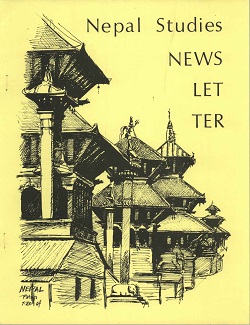Author Biography
Radhika Johari is currently a doctoral candidate at York University, Toronto. She has a rich professional background in the field of environment and development in South Asia, specifically in India, Nepal, and Bhutan, and has worked for leading philanthropic organizations in this region. These include the Ford Foundation, the International Development Research Centre, Canada (IDRC), and the World Wildlife Fund. These experiences, in practice, led her to seek a space for critical reflection and conceptual development within the graduate program in Social Anthropology at York University, and to pursue her interests in feminist research and praxis.
Abstract
Over a period of five decades, Kangra District, located in the mountainous northern Indian state of Himachal Pradesh, has been continually si(gh)ted within different development imaginaries that have evolved at particular configurations of scale and time and been given shape within a succession of international bilateral projects. These development flows into the region have in turn fostered a plethora of competing institutions and practices, contributing their own sometimes divergent flows within an inherently mobile and “developmentalizing” terrain. While this dynamic and multi-textured terrain offers rich opportunities for partnerships forged across disparate sites, there is, I argue, a need to revisit “collaboration” as a key feminist tool for facilitating social justice and change. Widely lauded for its empowering, equalizing and transformative potential by feminist scholars, collaboration is also viewed prescriptively in terms of “success” and “failure.” Consequently, “strategies and solutions” are sought to negotiate its minefields and to resolve, often futilely, the friction that repeatedly erupts within them. In this paper, I suggest a re-viewing of friction as a valuable methodological frame within feminist collaborative research and praxis. In place of the prevalent emphasis on containing and resolving friction generated at border crossings, I contend that feminist-oriented “location work” that engages with friction and follows its routes through the fluid and fertile space of a “developmentalizing terrain” can provide promising avenues and detours for empowerment and social justice. Drawing on Tsing’s (2005) discussion of the creative role of friction across global connections, I reflect on some of the ways in which it played out as a creative source of production, interruption and mutation within two of my collaborative ventures in Kangra. In doing so, I demonstrate how an attention to the sometimes unanticipated and diversionary routes that are generated by friction within collaborative efforts, and the vistas of “betrayal” and promise that they reveal, offer valuable insights for encounters at the interface of feminist praxis, anthropology and development practice.
Acknowledgements
Several organizations have provided generous support for my research, notably, the Social Sciences and Humanities Research Council of Canada (SSHRC); the International Development Research Centre of Canada (IDRC); the Wenner-Gren Foundation for Anthropological Research Inc., and York University. I thank them all. I would also like to thank Shubhra Gururani and Linda Peake at York University for their respective insights on development and feminist praxis, which fired me up and fueled the writing of this paper. I thank "V" and "S", my second family in the field, who opened my eyes to a new world. I extend personal thanks and appreciation to Mithu and Deep Johari, my mother and brother, who have offered me unstinting support, and to my friend, Rajeev Ahal, who first introduced me to Kangra, and whose support and inputs always ground me. I dedicate this paper to my late father, Pushkar Johari; he encouraged me to tread new paths and to open my eyes to promising vistas.
Creative Commons License

This work is licensed under a Creative Commons Attribution 4.0 License.
Recommended Citation
Johari, Radhika. 2014. Fields in Motion, Fields of Friction: Tales of "Betrayal" and Promise from Kangra District, India. HIMALAYA 34(1).
Available at:
https://digitalcommons.macalester.edu/himalaya/vol34/iss1/13


